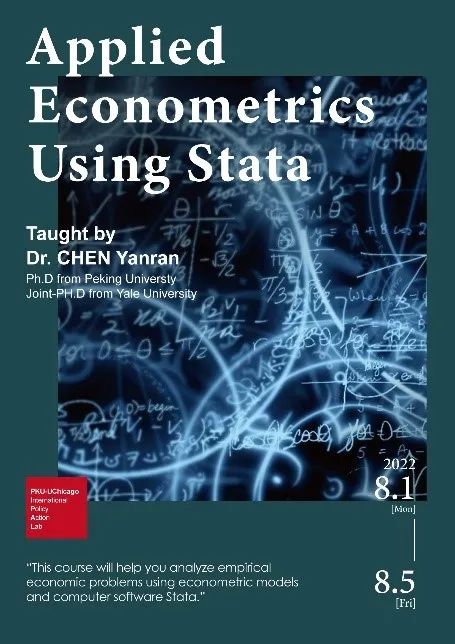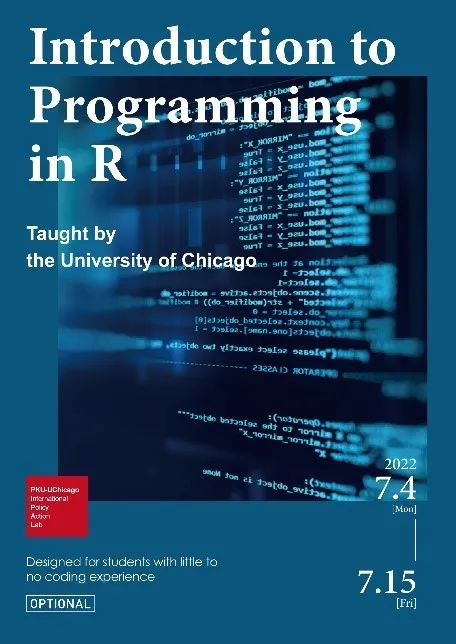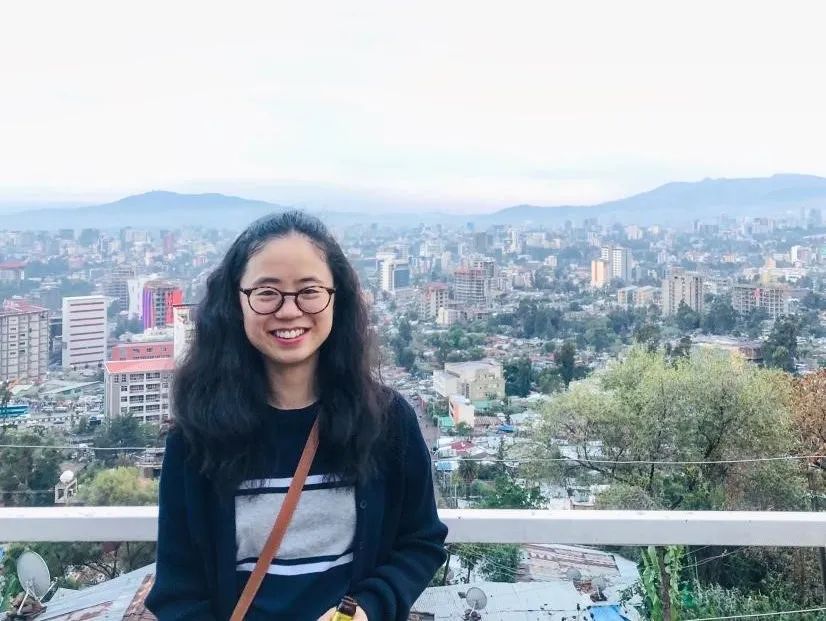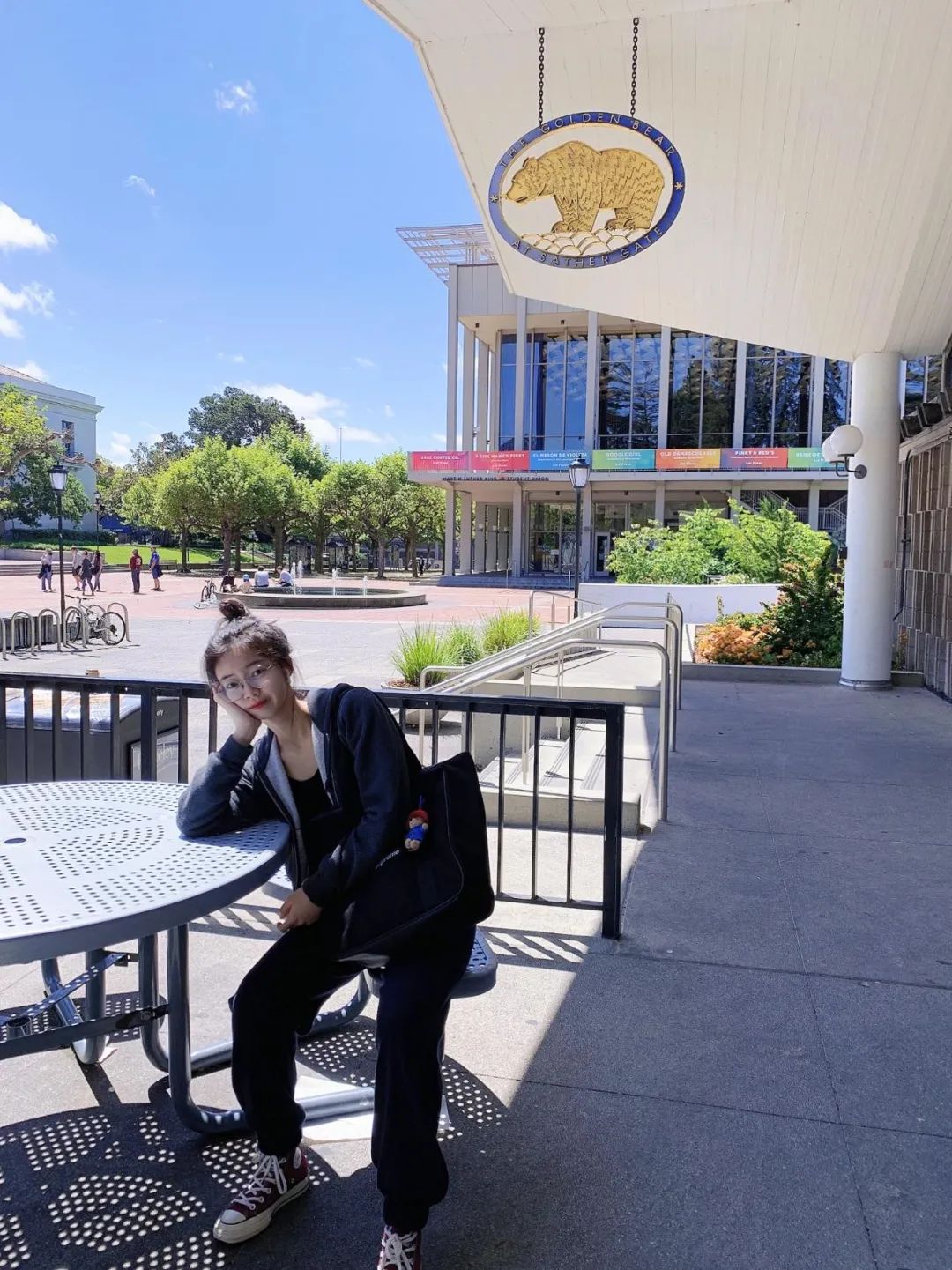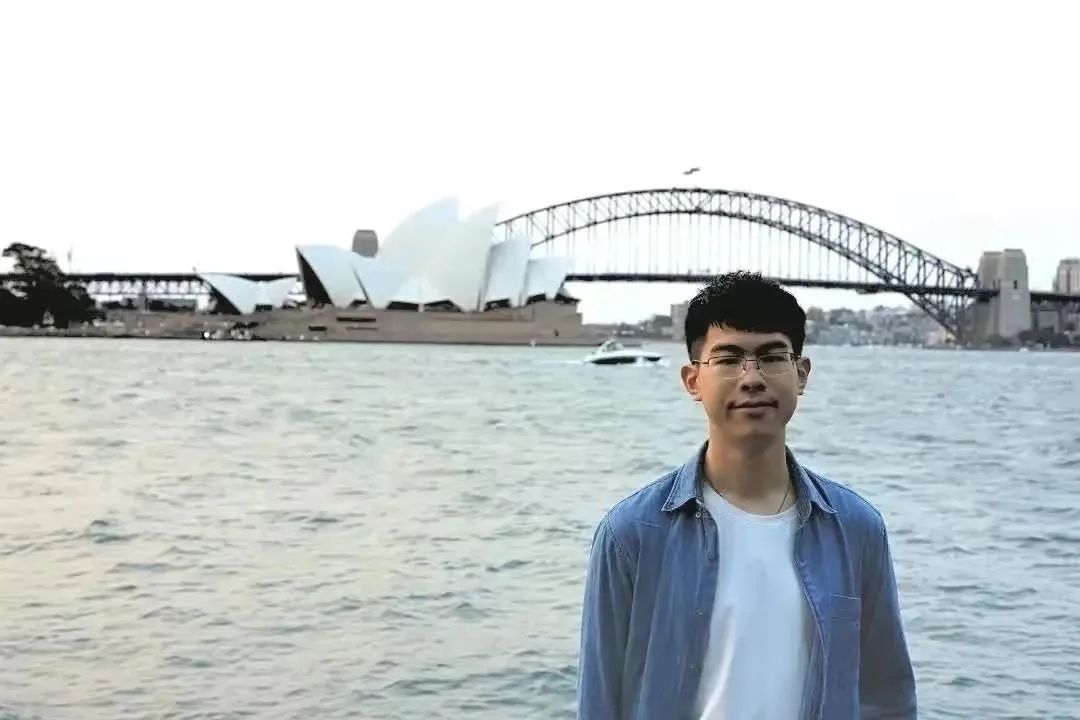[Application] 2022 PKU-UChicago International Policy Action Lab
Mar. 16, 2022
The 2022 PKU-UChicago International Policy Action Lab (IPAL) program application is now open!
The program will be held from July 18 and August 19, 2022 and you will learn the evidence-based approach of conducting international policy research from top scholars at Peking University and the University of Chicago, and have the opportunity to connect with a global cohort of like-minded individuals.
What exactly does the PKU-UChicago IPAL program have to offer? Five students from the previous year's program shared with us why they joined the program and how the program boosted their confidence in their future studies or career development. Let’s take a look at their experiences!
Yu Yixin
Q: Why did you choose to study PKU-UChicago International Policy Action Lab (IPAL) program?
A: During the past few years, I devoted myself to international development in Ethiopia via Partnership for Investment and Growth in Africa (PIGA, a program financed by the British government and executed by the International Trade Center of UN, is dedicated to the introduction of high-quality investment to promote sustainable development in Africa). As I endeavored to expand the impact of our work, the lack of quantitative knowledge and data analysis skills seemed to be holding me back. Ergo, I was determined to take relevant courses, but I also worried if it’d be challenging for a student of English and International Development Research Majors.
When I learned about IPAL from a friend who was studying at the University of Chicago, I knew it’d be a good fit for me. With its practical courses and collaboration-based projects, the program turned out to be a solid and enlightening new starting point for my career in international development.
Q: What did you gain from IPAL?
A: I acquired quantitative knowledge and preliminary skills of data analysis, which has laid a favorable foundation for me to continue learning quantitative analysis. As a postgraduate of Humanities, my achievements in the program definitely boosted my confidence in data analysis. I owe my thanks not only to my personal endeavors but also to the great lectures from the professors, and the kind help from the TAs.
Valerie Yuan
Q: Why did you choose to study PKU-UChicago International Policy Action Lab (IPAL) program?
A: As an International Economics and Trade major, I’ve always wanted to specialize in Public Policy Research for advanced studies. I hoped to fulfill this goal by applying for Harris School of Public Policy at the University of Chicago. The IPAL program could not only bring me knowledge of data analysis, but it could also serve as a window for me to take a closer look at Public Policy studies and find out if it were my true passion. The recommendation from my acquaintances also backed up my decision to participate in the program.
Q: What did you gain from IPAL?
A: First and foremost, I learned practical programming skills and data analysis knowledge from the intense academic courses and lectures from the professors. When it comes to programming, there has always been a stereotype about how it could be both a conundrum and a humdrum. However, my experience showed me just how fun and creative the coding really was, and how it could make a huge difference in our recognition and analysis if used in the right methods.
To me, IPAL was more than embracing new knowledge. I gained precious friendships through teamwork. I also learned valuable tips on the application of Master’s programs and the construction of career paths from diverse social events and office hours.
Serena Huang
Q: Why did you choose to study PKU-UChicago International Policy Action Lab (IPAL) program?
A: I majored in International Trade and Economics, and I’ve always been interested in public policy. Hence, closer contact with Public Policy Research at IPAL would be an asset to figure out my future specialty of study. Moreover, at the time of the application for IPAL, I was already familiar with the research methods of Econometrics, but coding seemed challenging to me. Taking this program was also an attempt to push me out of my comfort zone and strive to acquire programming skills.
Q: What did you gain from IPAL?
A: The most overt accomplishment was how enjoyable and meaningful I found programming could be, and how the appropriate research methods could make policy analysis a concrete and operable research instead of a mysterious concept in people’s stereotypes.
Friendship was another gain of surprise from the program. I struck up a relationship with one of my classmates from the program, who was also planning to apply for the Harris School of Public Policy. Our friendship lasted even though the program was completed. As we made applications for graduate schools, we would share our feelings and comfort each others’ anxiety. Amazingly, we were both admitted by the University of Chicago and even got a chance to meet up before the first semester began. It’s heart-warming how our friendship started online within the IPAL program and extended into reality.
Fan Hua
Q: Why did you choose to study PKU-UChicago International Policy Action Lab (IPAL) program?
A: Within my sophomore year at Peking University, I was already determined to study at Harris School of Public Policy for a Master’s Program. Therefore, in my case, it was a natural process to get in touch with the IPAL program and participate, as it was dedicated to presenting practical skills and methods to prepare students for public policy research.
Q: What did you gain from IPAL?
A: To start with, I enhanced my autonomous learning ability by me learning all the practical skills to set up a foundation in Public Policy Research methods. Before the program, I took various courses on R programming via Coursera (an international online studying platform), but none of them had provided me with a sufficient amount of techniques nor a complete structure of the field. IPAL, on the other hand, presented us with pragmatic guidance in programming and researching. By taking the initiative to solve problems, and by making efforts to read as much thesis as I could during the program, I can now independently clean data, play with data, analyze and make descriptions in accordance. The program has prepared me to keep on thinking about development and policy research in the future.
Furthermore, as an International Relations major, other than using literature research method in a study, I’m now able to combine qualitative and quantitative methods to solve problems with greater complexity.
In the development of human society, we are always going to meet challenges and obstacles. When faced with intricate issues, such as climate change, public health, epidemic prevention and control, etc., we cannot solely rely on one single discipline to provide comprehensive solutions. I believe that the greatest significance of public policy is to build an interdisciplinary bridge, and make comprehensive use of the knowledge and skills of various disciplines to better solve these problems and make our world a better place.
Chen Rui
Q: Why did you choose to study PKU-UChicago International Policy Action Lab (IPAL) program?
A: Harris School of Public Policy is my dream school, and I’ve always wanted to apply for its Master of Public Policy. I’ve paid continuous attention to its peripheral information, and that was how IPAL popped into my eyes. It seemed to be a decent start to pursue my dream, and it was highly recommended by some of the MPP seniors, so I didn’t really hesitate to participate.
Q: What did you gain from IPAL?
A: On the academic level, all courses were very enlightening. For instance, within the Econometrics course given by Professor Qin, we learned content covering almost one semester’s classes. With a clear and logical structure and progressive logic, the course helped us acquire the key skills that can be rapidly applied to research.
Peer cooperation was also an asset during the experience. As novices of programming, we constantly ran into program errors, and it would have consumed a great amount of time to solve the problems on our own. However, we were able to share our problems on the ED digital learning platform, so we could figure out the bugs in our coding as a team. The mutual assistance and open discussions promoted our achievements in a friendly environment.
In addition, I genuinely appreciated the great advice from Shilin, which was instrumental for my admission in advance by Harris School of Public Policy. The experience at IPAL encouraged me to discover the world and help make it better with the skills I’ve learned.
Notice:
If you wish to apply for the 2022 IPAL program or learn more detailed information, don’t hesitate to click on the link below:
https://harris.uchicago.edu/academics/non-degree-programs/credential-programs/peking-uchicago-international-policy-action-lab
For inquiries, please email to ipal@chicago.edu, ipal@pku.edu.cn, or add wechat: nz_kiwibird to join the webinar series by program director, faculty and alumni.
Source: Office of International Relations, PKU

